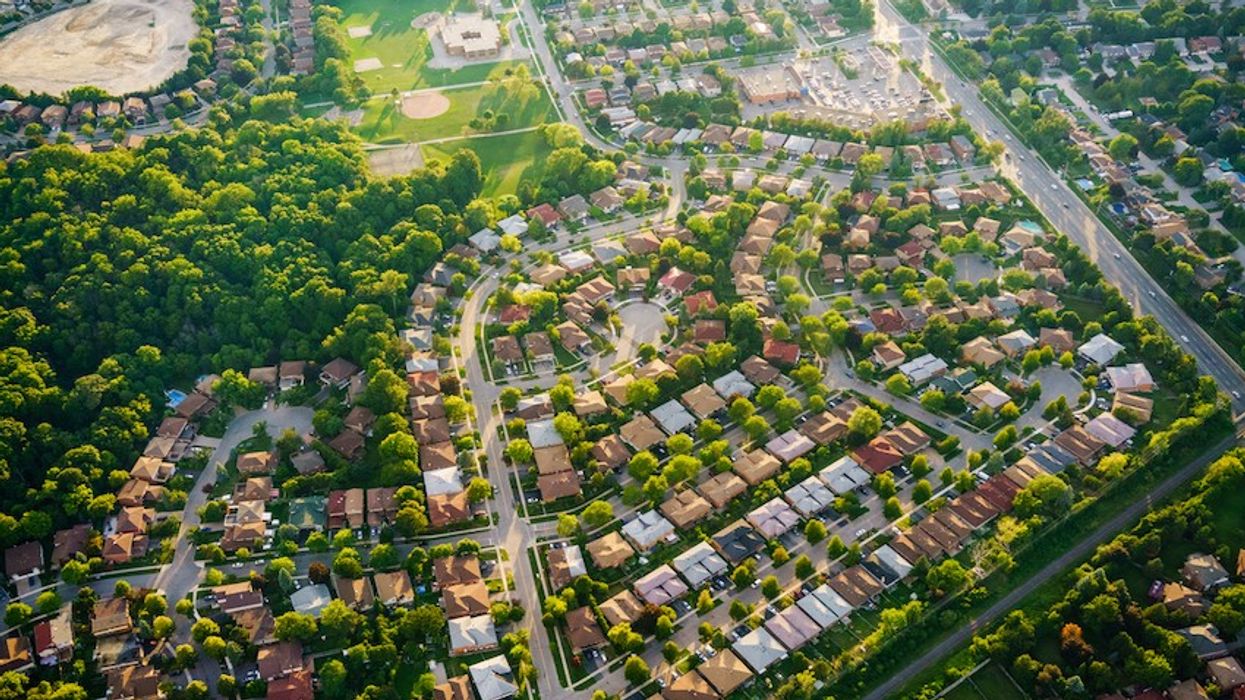Ontario is in need of a Green Home Renovation Tax Credit to help in the fight against climate change, the Ontario Real Estate Association (OREA) says in a new report.
Residential buildings are one of the leading drivers of greenhouse gas emissions in Ontario, and OREA's new report, entitled "Accelerating Ontario's Green Future," proposes reducing emissions in housing via eight specific recommendations. If enacted by the province, they would help meet Ontario's 2030 goal of lowering emissions to 30% below 2005 levels.
“Climate change is a major threat to our way of life and the residential housing sector has to do its part to lower emissions and mitigate risks,” said Tim Hudak, OREA CEO. “Through these recommendations, Ontario can help homeowners reduce their carbon footprint, safeguard their homes against climate change, and keep more money in their pockets.”
The proposed Green Home Renovation Tax Credit would support the retrofitting of older homes in rural and remote communities and would include undertakings like replacing oil furnaces or low-efficiency furnaces, improving insulation, draft proofing, professional sealing, and replacing outdated water heaters. OREA even suggests that this tax credit could extend to renovations and products that would help individuals work from home, which would help reduce commute-related emissions.
This tax credit initiative, if taken up by the province, would build on a similar program introduced by the federal government in 2007 -- the Home Renovation Tax Credit. Since its inception, the federal program has been extremely popular, providing 4.6M Canadians with a 15% tax credit on home renovation work and materials.
But the tax credit isn't the only way OREA is looking to make eco-friendly renovations more accessible. Another recommendation proposes the introduction of on-bill financing. This would see utility companies provide homeowners with the upfront costs of an energy efficiency project, with the money then later paid back through the homeowner's utility bill. This system has already been used successfully in Canada, with Manitoba Hydro having provided $400M in on-bill financing.
“On-bill financing is a great way to provide homeowners with upfront help to do a green renovation, which they can then pay off using the savings on their energy bills,” said Hudak. “The planet gets lower GHG emissions from homes, jobs get created in the renovation sector and homeowners get long term savings -- it’s a win-win.”
OREA also recommends the establishment of a home energy audit program, with the goal of auditing 1M homes by 2035. The audits would help determine the renovation costs for a house, which would them determine the size of an on-bill financing loan. The report goes on to proposed amendments to the Ontario Building Code to include energy-efficiency requirements for residential renovations being carried out in homes built before 2010.
"Without action to address emissions in Ontario’s residential building space, it will be difficult for Ontario to meet its existing targets and even harder to meet its future targets,” said OREA President Stacey Evoy. “In order to do so, the Ontario Government must also consider improving the climate resiliency of Ontario homes. Akin to GHG reduction improvements, increasing a home’s climate change adaptation protection will only increase the value of the home.”
OREA also advises that the Ontario government continue investing in research and development of renewable natural gas, as well as encourage the use of electric vehicle (EV) charging stations by amending the Building Code to make EV ports mandatory in new buildings and removing HST on charging infrastructure. And with the introduction of the federal carbon tax, OREA notes that the $400M Ontario Carbon trust "is no longer necessary," and suggests that the money instead be used to fund other initiatives with social and economic impact.
But as temperatures are already creeping upward, water levels are rising, and severe weather events are becoming more frequent, a perspective on how climate change will impact the real estate market needs to be considered. The report advises that the government create a new user-friendly flood map for Ontario to help residents make well-informed decisions about where they're choose to buy and sell property.
"Recent environmental and climate change events in Canada, such as heat waves in British Columbia, have highlighted the significant challenges and issues that arise when housing is not prepared for rapidly changing environmental conditions," the report reads. "Impacts range from social well-being to economic and financial considerations, which require proactive government intervention to ensure that Ontarians are safeguarded, and that homeowners are prepared for the future."





















